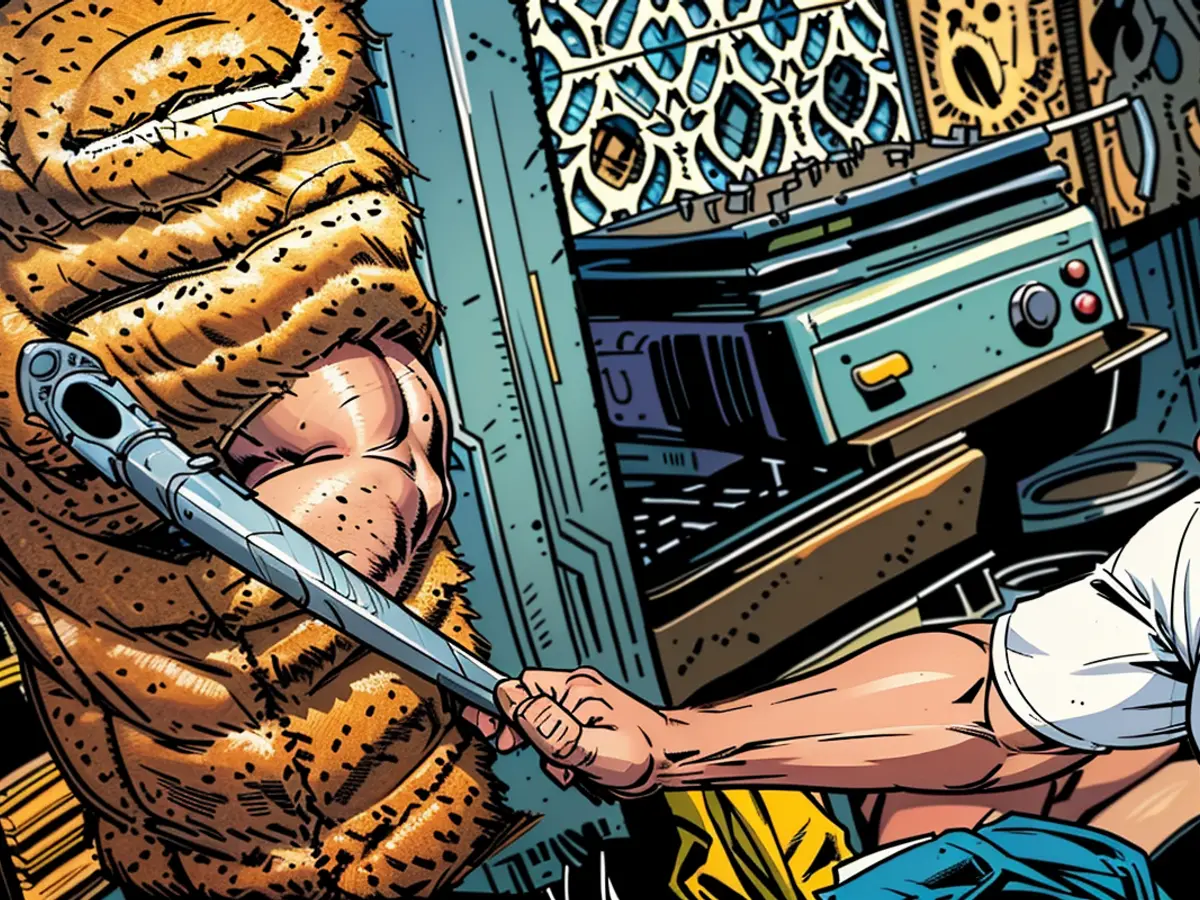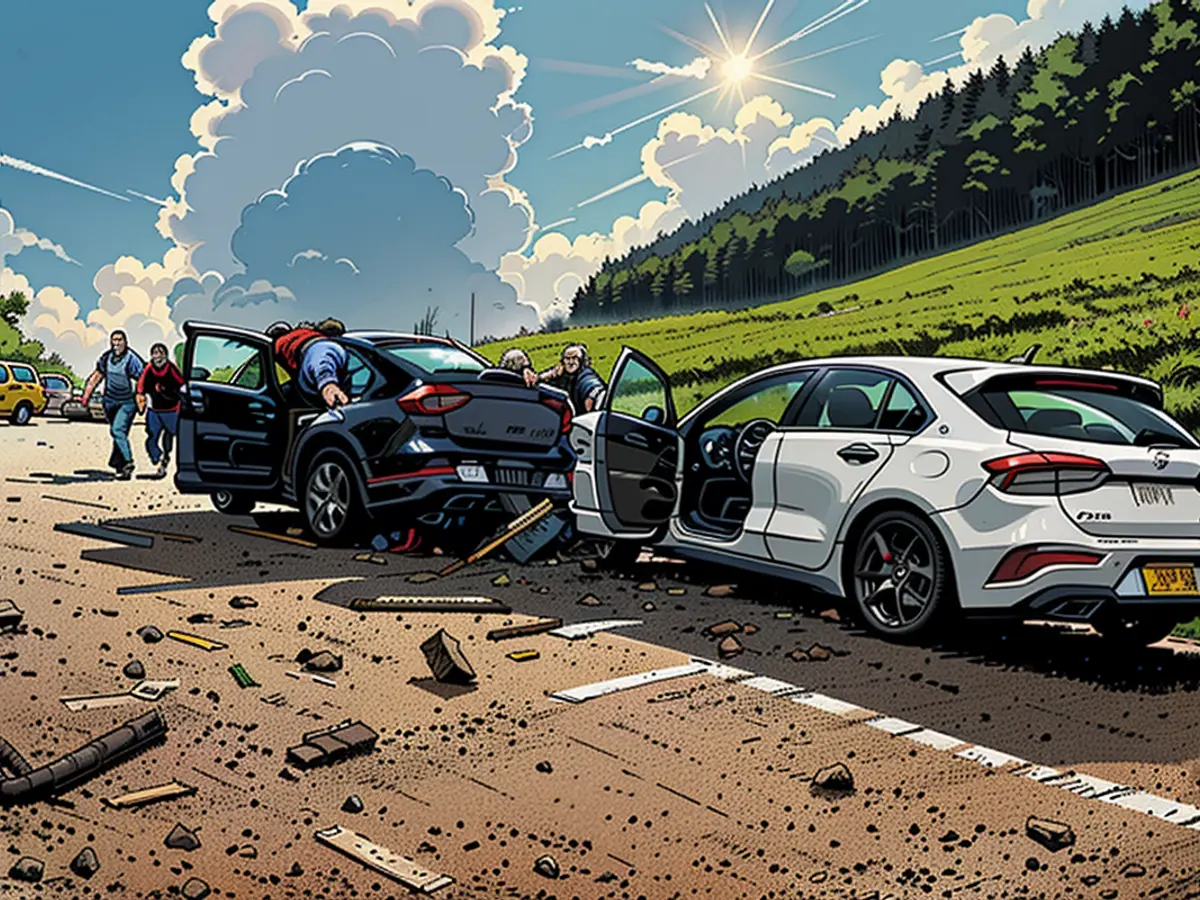- The debate on Doner is in full swing
Should there be uniform rules for the production of doner meat across Europe? And if so, what should they look like? A less than appetizing dispute is brewing between the German and Turkish doner lobbies over these questions. The background is an initiative by the International Doner Association (Udofed), which has applied to the European Union to include doner on the EU list of "guaranteed traditional specialties."
If the application is granted, doner skewers would have to be produced according to uniform rules throughout the EU in the future. The gastronomy and meat producers in Germany are alarmed and are opposing the initiative with the support of the federal government.
One criticism is that if the application is accepted, the common use of veal and young beef, as well as turkey meat, for doner production in Germany would become illegal.
According to the Turkish application, doner must be made from meat from at least 16-month-old cattle or leg and/or shoulder meat from at least six-month-old sheep. The only alternative would be doner made from chicken meat, which would have to be made from chicken breast and/or chicken thighs. It would also be precisely regulated which ingredients are allowed in the marinade, how thick the meat slices should be, and how long they should be marinated.
The German doner industry has prominent supporters
How the dispute will turn out could be decided soon. According to information from the German Press Agency, the hot phase of the examination procedure for the application submitted in 2022 has recently begun. The EU Commission, as the responsible authority, is currently examining the objections. If they are deemed admissible, it will order consultations to resolve the dispute. If no mutually acceptable solution is found in these consultations, a committee of representatives of the EU member states will have to deal with the case and could then prescribe to the Commission by majority decision whether it should grant the application or not.
Among the prominent German opponents of the Turkish initiative is Agriculture Minister Cem Özdemir. "The doner belongs to Germany. How it is prepared and eaten here should be decided by everyone themselves. There's no need for guidelines from Ankara," the Green politician criticizes on the social network X. A ministry spokesman also said that if the application were accepted, there would be noticeable economic effects for manufacturers and sales outlets.
In addition to the ministry, the Association of Turkish Doner Producers in Europe and the German Hotel and Restaurant Association (Dehoga) have also filed an objection with the EU against the application for the registration of doner as a traditional specialty.
Dehoga argues similarly to the ministry. If the application were granted, it would have serious consequences for gastronomic businesses and consumers: "The consequences would necessarily be new designations for doner dishes, resulting in confusion and lack of transparency, difficulties in delimitation and legal uncertainty." For example, it is clear that there would no longer be vegetable doner.
At the same time, it is true that continuing production in Germany would not be an issue. Unlike the EU seal "protected designation of origin", which ensures that champagne can only be produced in the French wine region of Champagne, the EU seal "guaranteed traditional specialty" is significantly weaker. According to the German government's statements, the production process is not tied to any specific region, and the crucial factor is adherence to the traditional recipe or manufacturing method. Examples of this category include Heumilch and Pizza Napoletana. The preparation of doner dishes is also not affected by the application. For instance, it would not regulate what kind of salad and sauce goes into a doner wrap.
It remains unclear why the International Doner Association has submitted an application that even the Turkish Doner Manufacturers' Association in Europe does not support. The German Press Agency did not receive a clear answer on this topic, and the application itself does not explain why long-established production methods in Germany should no longer be used in the future. The application even refers to doner as a cultural symbol of Turkish immigration to Germany, particularly the variant served with salad, onions, tomato slices, and sauce in flatbread.
According to the Turkish Doner Manufacturers' Association in Europe, doner was first made in Berlin in 1972 by Turkish worker Kadir Nurman, as stated in the application. "Since then, the name and manufacturing process have remained unchanged and have spread in Germany and other European countries."
A settlement through consultations? The applicants describe doner as a type of kebab where meat slices are stacked horizontally on a metal rod, known as a doner spit, and cooked vertically in front of a heat source by rotating around its axis. The term comes from the Turkish verb "döner", which means "to turn" in German. Kebab is a general term for all types of meat cooked in front of a heat source and originally comes from Arabic.
How the dispute might end? The applicants are now rowing back a bit. They say they want to harm no one, especially not the German market, according to Huriye Özener, consultant of the International Doner Association in Turkey. It's just about protecting the tradition and the way the meat is prepared, and having it recognized that doner comes from Turkey. They could sit down and talk about the use of beef and chicken, and the EU Commission's dispute settlement procedure could start in a few weeks.
What it's about, besides symbolic issues, is shown by the numbers on the website of the Turkish Doner Manufacturers' Association in Europe. They estimate that around 400 tons of doner are produced daily across Europe, and there are about 60,000 employees in the industry. The doner industry generates around 2.4 billion euros in annual turnover in Germany and around 3.5 billion euros in Europe.
Meanwhile, the doner dispute in Germany has even led politicians who usually promote regional specialties to reveal themselves as doner fans. Bavarian Minister-President Markus Söder wrote on X that doner is "definitely in the top 3" of his favorite meals, followed only by roast pork and chicken.
If the application is approved, chicken breast and chicken thighs could become the primary ingredients for doner production in Germany, as per the Turkish application's requirements. The German doner industry, including organizations like Dehoga, has voiced concerns about potential confusion and legal uncertainty if the application is granted.








